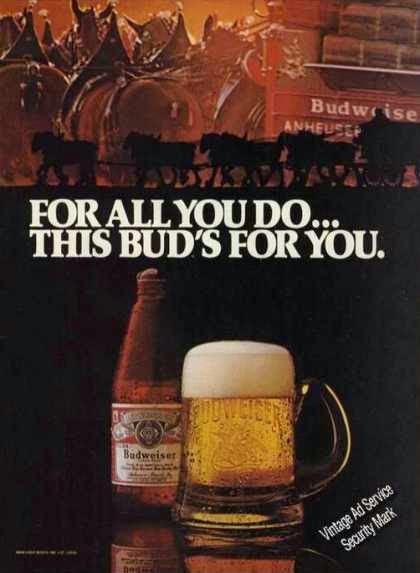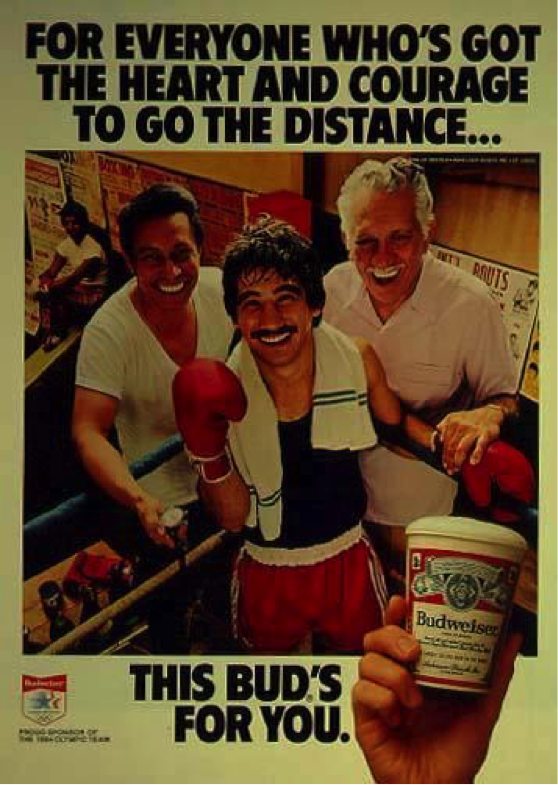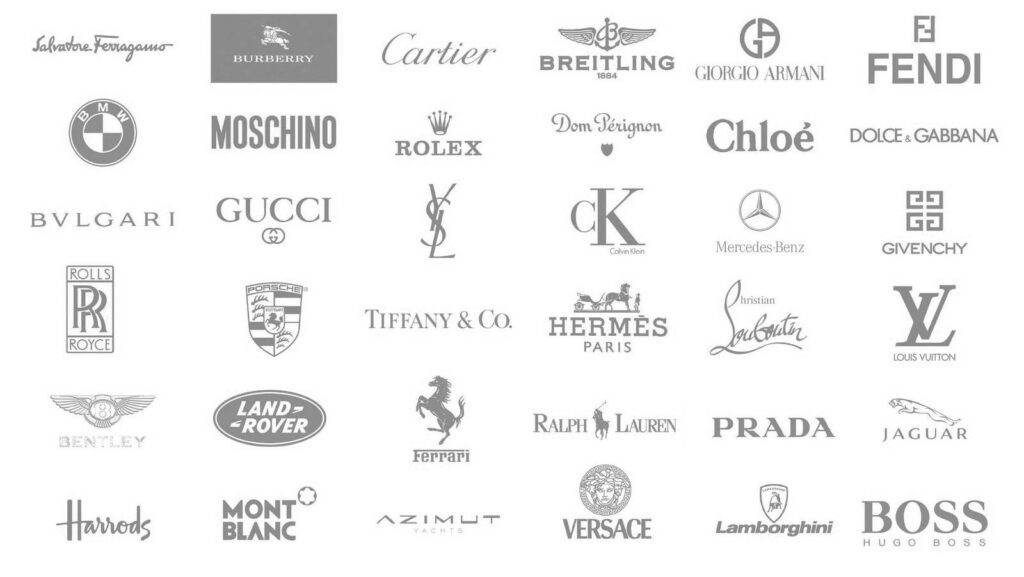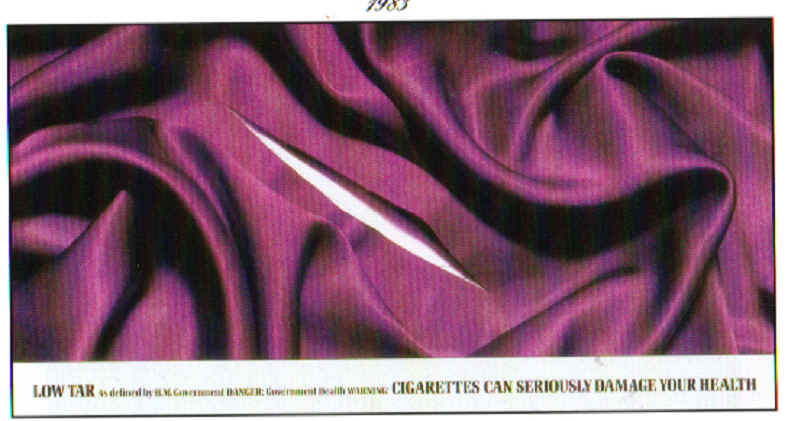Iconic Ads: Budweiser – This Bud’s For You

Budweiser adopted Reagan’s rallying cry from the perspective of the working-class – “To everyone who puts in a hard day’s work, this Bud’s for you.”
Anheuser-Busch began the 1970s with Schlitz as its main competitor, but by the end of the decade, it was up against a new No. 2 Miller.
Anheuser-Busch was jolted by rival Miller’s sports marketing strategies, the popularity of its Miller Lite brand (launched in 1975), lower sales by younger drinkers, and a 1976 strike.
All of this happened as August A. Busch III took over as the CEO
August III realized that advertising was the missing piece in beating Miller and increasing its market share in the United States to 50%.
August III had a costly practice of having many advertising firms pitch for business in order to get the best creatives. And it was D’Arcy who provided the four possibilities, one of which being This Bud’s for You. August liked it right away.
However, during the 1940s, George Chapman, the head accountant for Anheuser-Busch in St. Louis, MO, had come up with the line. (He was paid a monthly stipend for his marketing efforts, which was passed down to his wife after his death.)
D’Arcy’s Charlie Claggett utilized the line as one of the choices. (It’s unclear whether Charlie was aware of this line previously.)
The economic scenario in the US was bad at that time. Inflation had reached double digits in the late 1970s, and a protracted recession resulting from inflation-correcting measures sent unemployment skyrocketing. Japanese corporations have continued to make advances in the United States. Cultural tensions were at an all-time high, especially among men. New national mythologies that would drive the country to reclaim its previous greatness were in high demand. Ronald Reagan was there to answer the call, as well as the films and television shows of the day.
When Reagan called for the United States to return to its frontier roots, he drew men from all walks of life. He resurrected the concept of the action hero, urging American males to follow John Wayne’s portrayals of frontiersmen in Western films, as well as modern frontiersmen like Clint Eastwood’s Dirty Harry and Sylvester Stallone’s Rambo. New man-of-action heroes were needed in the United States: people with the vision, bravery, and can-do attitude to alter the country’s shaky institutions, invent crazily imaginative products, create wonderful new markets, and conquer distant unbelievers.
Working-class American men responded more collectively to this demand. Reagan’s manifesto was interpreted as a nationalist call to reverse the decline of domestic industry and restore American strength through the concerted efforts of American men gathering behind a common cause.
Budweiser adopted Reagan’s rallying cry from the perspective of working-class males, many of whom were being laid off, forced to accept significant wage and benefit cuts, or driven into the low-wage service industry. Bud, dressed as a powerful leader, praised employees for their bravery and encouraged them to approach their tasks with the appropriate ideals. The announcer patted workers on the back in the launch spot, “This Bud’s for You,” saying, “To everyone who puts in a hard day’s work, this Bud’s for you.” The jingle, a cheery pop salute, helped to fill out the narrator’s pitch.
The ad featured a montage of blue-collar employees from many walks of life, each of whom excelled at their craft with zeal and zeal. Train conductors, lumberjacks, construction workers, truck drivers, farmers, cooks, fishers, welders, window washers, a boxer, a barber, a fruit hauler, a meat cutter, and a police officer were among those who appeared on the show.
The last voiceover is provided by singer Lou Rawls, who was one of the first African-Americans to donate his talents to the firm, and no less surprisingly, in assisting in the sale of a drink aimed mostly at white employees.
Budweiser was soon able to gain control of more than 35% of the US beer market.





